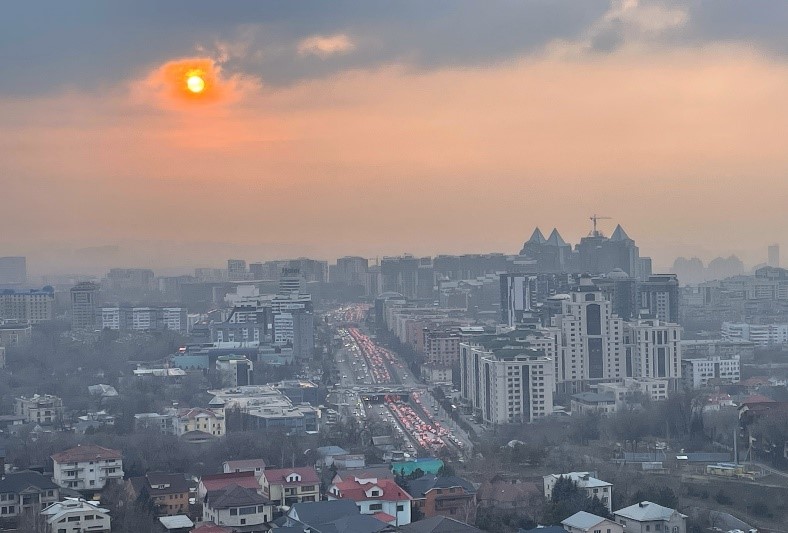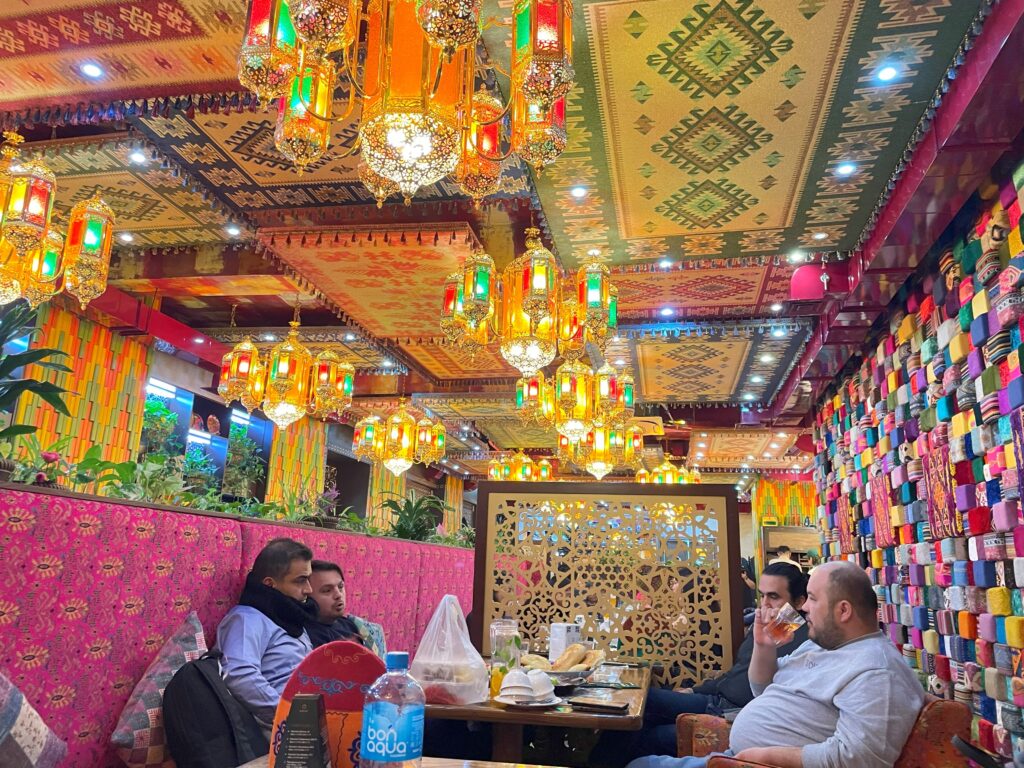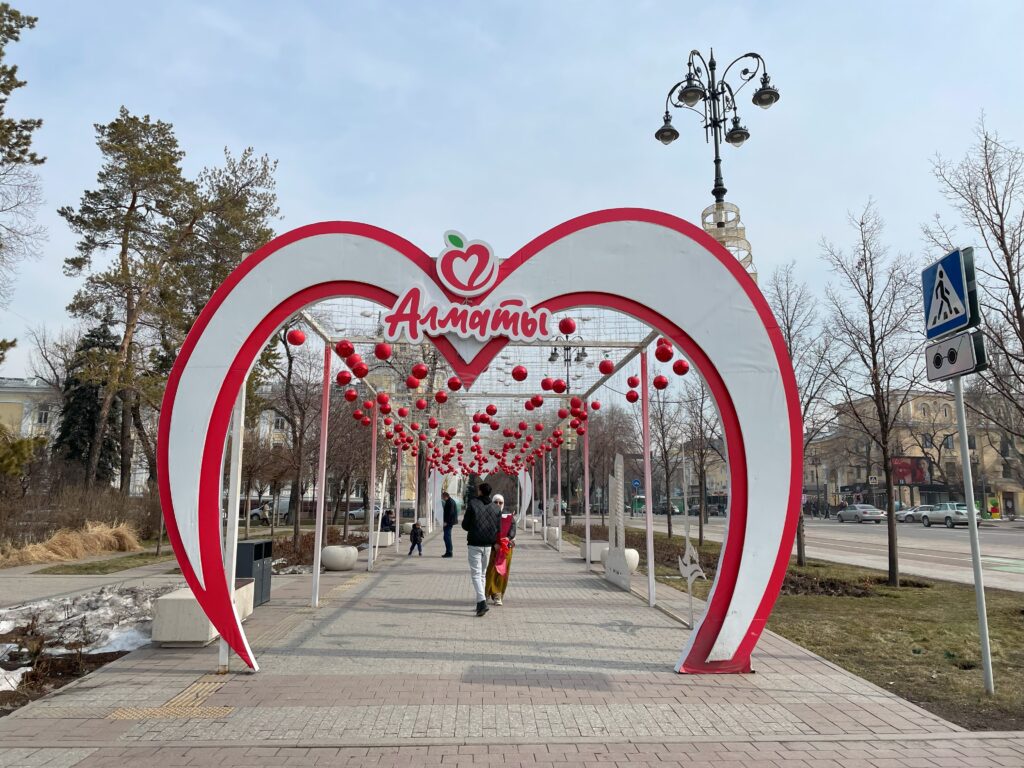FY2023 Short-term Russian and Kazakh Language Training Report
School of Humanities and Culture, Colleage of Comparative Culture
Tomita Asuki (2nd year)
There are three main motivations for participating in this training.
The first is purely for the purpose of improving one’s Russian language skills. No matter how many years I studied Russian, I never had enough time to be exposed to the language, and I never felt like I was improving. I chose Kazakhstan because I wanted to be immersed in a world where everything around me was written in Cyrillic script.
The second reason was that I wanted to venture into the “unknown” remote part of Central Asia, Kazakhstan. In Japan, it is easy to obtain information about the West, the U.S., and China, but I feel that information about Central Asia is relatively minor. Because of the lack of information, I chose Kazakhstan as my study abroad destination with the expectation that I would be able to learn more and spend an exciting month compared to studying abroad in other countries.
The third reason is that I wanted to see what is good about Japan relatively from a foreign perspective. There is often a common perception among Japan praise programs and the general public that “Japan is a good country,” but I was curious about what kind of difference was giving a good impression to Japan from other countries, and whether this idea was not a one-sided prejudice of the Japanese, and decided to study abroad to broaden my perspective.
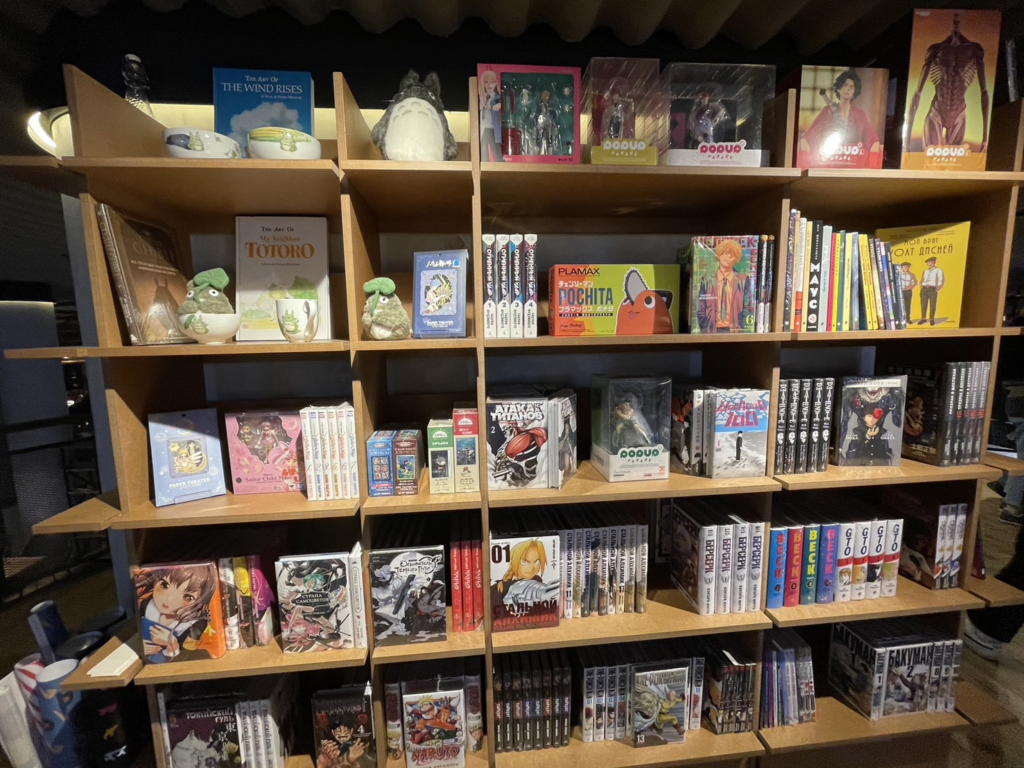 Manga and other Japanese goods translated into Russian
Manga and other Japanese goods translated into Russian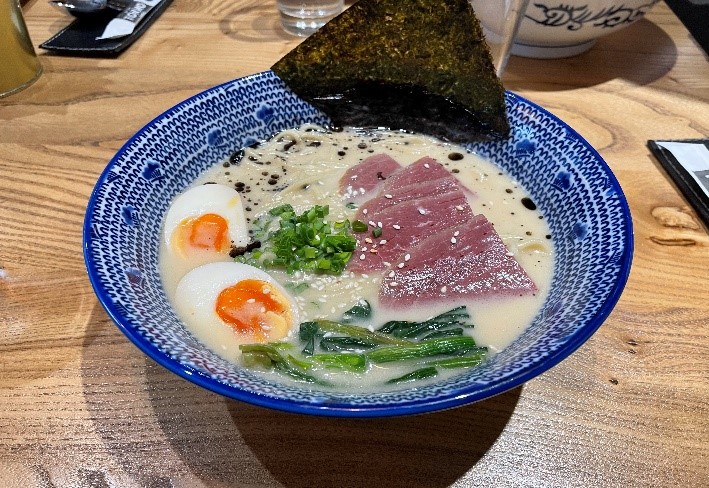 Ramen at a restaurant that claims to be “Japanese ramen”
Ramen at a restaurant that claims to be “Japanese ramen”
My honest impressions after having studied in the Republic of Kazakhstan
My overall impression is that Kazakhstan is a fusion of Islamic, Asian, and European cultures, a country that is chaotic in a bad way, but exotic in a good way. Maybe I feel this way especially because I was in Almaty, a large city of 2 million people. The people lived alternately speaking Kazakh and Russian, and while they retained a nomadic food culture of eating horse and mutton, they also had devout Islamic faith and valued family and traditions. I feel that the charm of Kazakhstan is that you can see, hear, smell, and feel such a wide variety of ways of coexistence.
About Almaty
Looking at the people walking down the streets of Almaty, I saw that they were all different in appearance and height. According to what I heard at the museum, the ethnic composition was Kazakhs, who are Asians, in the majority, followed by Russians, followed by Asian minorities and Europeans, and I felt that it was multiracial in contrast to the United States. It may truly be called the “melting pot of Asian races.”
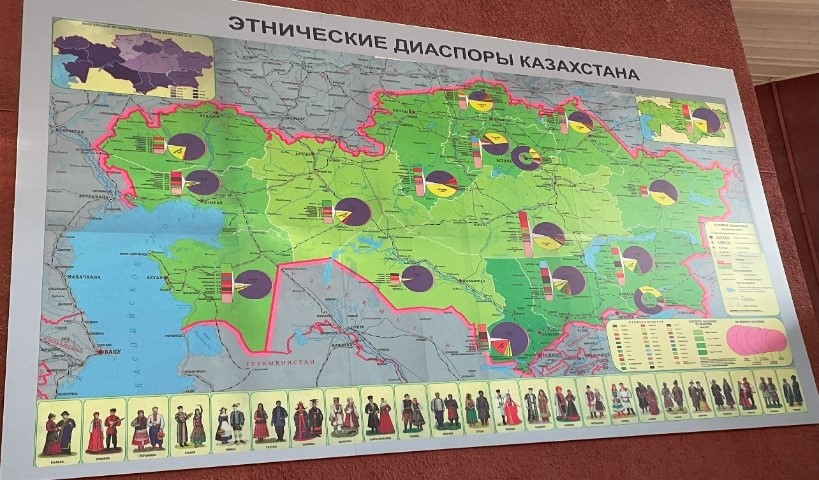 Breakdown of ethnic composition on the map, with each ethnicity listed at the bottom
Breakdown of ethnic composition on the map, with each ethnicity listed at the bottom
I was also surprised by the sense of time of the people of Almaty. According to a Kazakh who happened to be with me on the bus, being late for work due to traffic jams is an everyday occurrence, so there is no blame if you are an hour or two late. I was often about an hour late for appointments with friends, so in a way I envied them because they were not as punctual as in Japan.
I was also impressed by the food culture in Almaty. It was a very unusual sight to see a mixture of Russian food culture, the food culture of nomads who ate a variety of meats, and the food culture of the Silk Road cultural sphere, which made heavy use of spices. Also, it was very interesting that the food culture of Japan is not a complete copy import, but is arranged in a Kazakh style without understanding. Korean and Chinese cuisine were close to the authentic taste, and I could directly feel the political and geographical ties between the countries.
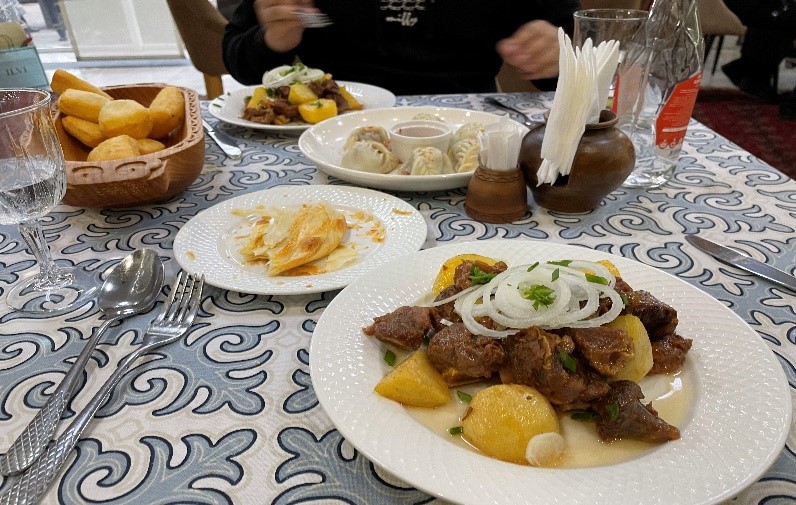 ラクダの肉
ラクダの肉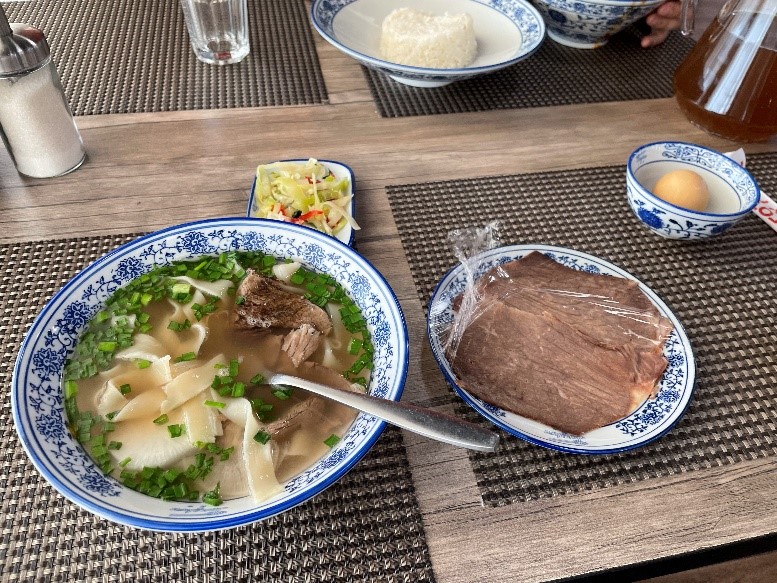 Ramen at a Chinese restaurant
Ramen at a Chinese restaurant
The area in which I feel I have grown the most this time is in my studies. I feel that my Russian level has definitely improved, as I have had many opportunities to be exposed to new vocabulary and have had ample time to work on my Russian language study. The relationships I made there also became a valuable asset. Even though I spoke only a few words, we were able to understand and communicate each other’s intentions. I have more opportunities to socialize with people than when I was in Japan, and I even feel that I have built closer relationships with people than I have with Japanese people. I feel that this training was a fulfilling month in which I learned new things on a daily basis.

